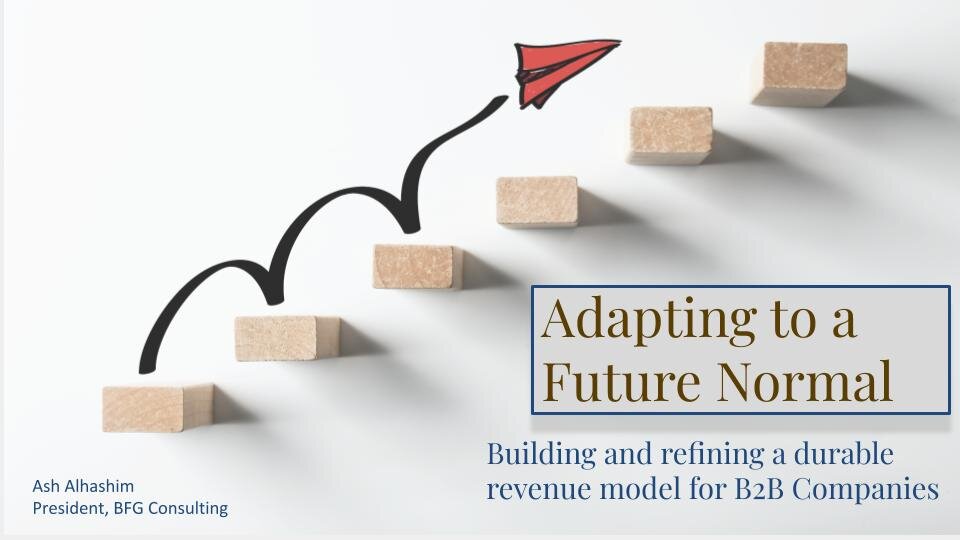TL;DR: In order to build and run a world class sales org:
It all starts with Ideal Customer Profile (ICP)
Hire with your ICP in mind
Ruthlessly disqualify bad deals
Arm your sales managers
Invest in your people, and help them carve career paths based on their strengths
5 Tips for Building and Managing a World Class Sales Organization
Do you need a sales team in order for your business to compete?
One of my least favorite apocryphal corporate stories is the one about how Atlassian built a >$30B company without having to “sell” their product. It was just that good.
This simply did not happen. Atlassian did rely on salespeople to grow. They just adopted a less traditional model of selling by leaning heavily on the channel for revenue. So instead of having internal Atlassian employees sell the product, third parties did. Other companies, like Dropbox and Slack, had their “no sales teams necessary” phases early on. But when competition heated up, and they began to notice competitors beating them into strategic accounts, each company changed its tune and invested in sales.
The fact is, most companies need sales. Maybe not straight away. Maybe your product is that good, or the price is low enough to gain traction without the need for a high touch sales cycle. But if your company is lucky enough to begin selling into the market majority, and/or if your price point increases beyond a few hundred dollars a month, you will eventually need a sales team.
So how do build your charter sales team? And how do you structure and manage it so that it becomes a competitive force for your business? Below we’ll take a look at a few tips for building and managing a world class sales organization.
1/ It all starts with Ideal Customer Profile (ICP)
We’ll talk a lot more about this in future posts, but ICP is the star at the center of the go-to-market solar system. Everything must orbit it. Ideal Customer Profile describes the types of companies you should target. Which industries are they in? How many employees do they have and how much do they earn? What are their business models? How do they monetize? What is their level of technological sophistication?
You need a clear understanding of what companies you will be selling to in order to make the right operational decisions. For example, you need ICP clarity in order to build functioning models that consider things like deal length, deal size, CAC, and other metrics. From there, you have a baseline to compare performance against; a hard requirement for any business that wants to be data-driven.
Last, many otherwise strong companies struggle if their sales, marketing, customer success and product teams aren’t aligned on ICP. If you have different teams working hard but going in different directions, you’re in for a brutal journey.
2/ Hire with your ICP in mind
An extension of point 1, having clarity as to what companies you’ll be selling to informs what the talent at your organization should look like. While important, this goes beyond simply hiring people who have domain experience. This has to do with the economics of the operation itself.
For example, if you take a look at the sales team at Yelp, it should come as no surprise that it looks very different from the sales team at Workday. AEs at Yelp are running a ton of transactional, one-call-close deals in parallel and pounding the phones. You don’t get your own personal SDR to help out at Yelp. A Solutions Engineer isn’t riding shotgun screaming “Ride or die” with you. On the other hand, AEs at Workday need a tremendous amount of support from sales development teams to break into their accounts, and due to the technical nature of the sale and audience, an SE is critical on the majority of (if not all) deals.
Beyond this, your hiring team should be asking questions like “does the person seem to have authentic affinity for the market we’re selling into?” That sort of passion is palpable in a sales cycle. So is a lack of passion.
3/ Ruthlessly disqualify bad deals
A big pet peeve of sales leaders is inflated pipeline. Aside from making it difficult to forecast with accuracy, inflated pipeline is usually indicative of underlying bad habits. It’s one thing for a rep to be overly optimistic (in my experience, time-in-seat solves this problem naturally by turning salespeople into cynics), but it’s an entirely different thing if reps consistently lose or push “great” deals. The root cause of this is often either lack of qualification or poor qualification of deals.
You can surface lack of qualification by asking your rep tough questions. “Is your champion really a champion? If so, what has he done to prove it?”
Or, “Is your decision maker really the decision maker? If so, why can she not explain how a product like this is purchased or who is involved in the process?”
But poor qualification can be a bit trickier, and as a result more difficult to spot. You could have a very interested buyer who has jumped through the hoops you’ve put her through and done all the homework. She has introduced you to all the right people typically involved in a process like this. The boxes are checked, so we should feel good about the deal, right? This is where ICP clarity and the idea of customer pain + economic impact (we’ll discuss these topics in a future post about discovery and sales mechanics) come into play. If there is not a strong use case that’s been commonly solved with your product at similar companies, the need may not be strong. A new CFO could come in at the 11th hour and scrap the whole 12 month deal because the TL;DR of it wasn’t compelling.
In short, reps need that acute understanding of ICP and the willingness to ask tough questions to determine whether the deal is qualified. And, what’s more difficult, reps must be comfortable disqualifying bad deals early and often. Lean pipelines with high conversion rates and are the hallmark of stellar sales organizations.
4/ Arm your sales managers
There is no shortage of sales technology out there. However, the majority of it serves the actual act of selling. Lead/account enrichment, prospecting automation, CRM, forecasting, e-signatures… This should come as no surprise. First, what better way for software to make sales teams better than to make the process of selling easier/better/faster? Second, the size of the market of sales managers is relatively small, so founders are incentivized to build products that cater to individual contributors instead.
In my experience, technology that empowers sales managers is scant (though if you know of great software that proves me wrong, I’d love to hear about it). The currency that powers sales leadership is visibility, as it’s important to know the state of the union at all times but impossible to maintain intimate knowledge of every one of your reps’ deals. Therefore, the tools that were most useful to me were the ones that granted that visibility and made it easy for everyone, especially the reps, to keep deal data up-to-date.
As a sales leader, I found Datahug to be incredibly powerful. Its coaching functionality was particularly useful, which gave me visibility into how engaged reps were with their deals, how multi-threaded their deals were, whether next steps were set, and other useful signals.
In recent years, I’ve taken a liking to Troops. I love that it syncs Salesforce to Slack. Through that integration, they’ve generally done a great job of making data easily accessible by not only sales managers but the overall company through things like natural language commands, customized alerting and workflows.
A product I haven’t used personally but have been hearing great things about recently is Pathlight. It’s described as a sales manager intelligence hub, and what seems particularly compelling to me is how they make their deal analysis actionable (example below).
5/ Invest in your people, and help them carve career paths based on their strengths
Losing great people sucks. I personally found it to be the worst part of being in a leadership role. People leave jobs for a variety of reasons, some of which are out of leadership’s control. Obviously, sales managers should be attentive and available and treat their people well -- after all, most people quit their bosses and not their companies.
But even that is not enough in our hyper-competitive world. Beyond loving their company and liking their managers, salespeople should feel valued. They should have a sense of where they (might) be heading in their careers.
Investing in your people is a no-brainer. Aside from the obvious benefits of making reps feel appreciated as knowledge workers, this is great for your bottom line as good training can improve all your KPIs. Products like Saleshood make training and enablement highly accessible to everyone. For more custom training program development, firms like TOPO (now a part of Gartner) run custom programs that I’ve found to be exceptional.
Carving out the time to help your reps think about career path is not something I’ve personally relied on a tool for. It’s just something you have to take the time to do as a sales leader. These conversations can be fun and rewarding, and I have found that having a sense of where an employee wants to go is useful in giving them feedback. As a sales rep, some of my fondest memories are of conversations with managers who took the time to help me think about my future.






